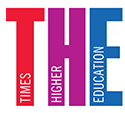Dutch universities also want to make it easier for academics to become professors on the basis of their teaching record, in a shift that will be closely watched by policymakers and unions across Europe.
The Association of Universities in the Netherlands (VSNU), the Netherlands Organisation for Scientific Research (NWO), and bodies for university medical centres and health research said that they would organise a raft of activities in 2019 designed to find a “new approach” to “recognising and rewarding academics”.
According to Rianne Letschert, rector of Maastricht Universityand one of the leaders of the review, one of the aims is to scale back the use of citation metrics and controversial journal impact factors, an average measure of the citations papers in a particular journal receive.
These metrics are currently “dominant” factors in university promotion decisions, and are used by the NWO when making grant decisions, she said.
Their use would be scaled back, and Professor Letschert said she hopes that instead there would be an expectation that funders and university heads of department would read applicants’ work, rather than rely on metrics.
Another plank of next year’s review is to create “differentiation of career pathways”, meaning that universities and university medical centres should give academics “a choice for specific focus areas –teaching, research, knowledge transfer and/or leadership”, according to a VSNU statement.
Workload for academics has ballooned as they are expected to fulfil all these roles, Professor Letschert said, at a time of surging student numbers. “When does it end? How can we be excellent in all these tasks?” she asked.
Maastricht and Utrecht universities have already brought in professorial positions where promotion is tilted towards teaching talent, she said, but this could now be rolled out across the country.
These positions would not be explicitly labelled “teaching professors” – “it should not become a B-track”, Professor Letschert said – and would still require the professors to conduct research, she explained. But the pressure to win grants would be relaxed, she added. One idea is to require these professors to have master’s degrees in educational science.
According to Rinze Benedictus, a policy adviser at University Medical Centre Utrecht, the Dutch rethink was spurred by a realisation that, although the Netherlands performs very well when it comes to research metrics, the “unintended consequences” of this system have gone too far.
Mr Benedictus previously warned that researchers in university medical centres were steering clear of publications that would benefit medicine because they were unlikely to rack up many citations. There was a “mismatch” between how scholars were assessed and the social relevance of their work, he said.
The Dutch reforms aim to boost the impact of research on society, and the NWO “will look for ways to increase the weight of research quality and anticipated impact in its evaluation of researchers and proposals”.
“Impact” has proved controversial in the UK, where the real-world effect of scholarship now determines a substantial chunk of university funding. How to measure impact is “a hot issue here as well”, Mr Benedictus said.
There is no agreement so far on how to measure impact, he said, although one idea put forward by the Dutch Royal Academy of Sciences was to judge researchers on whether they had followed the right dissemination processes, rather than whether or not impact had actually occurred.
“We can’t predict impact, but we can ask researchers to maximise the chances of it having impact,” Mr Benedictus said.


0 Comments